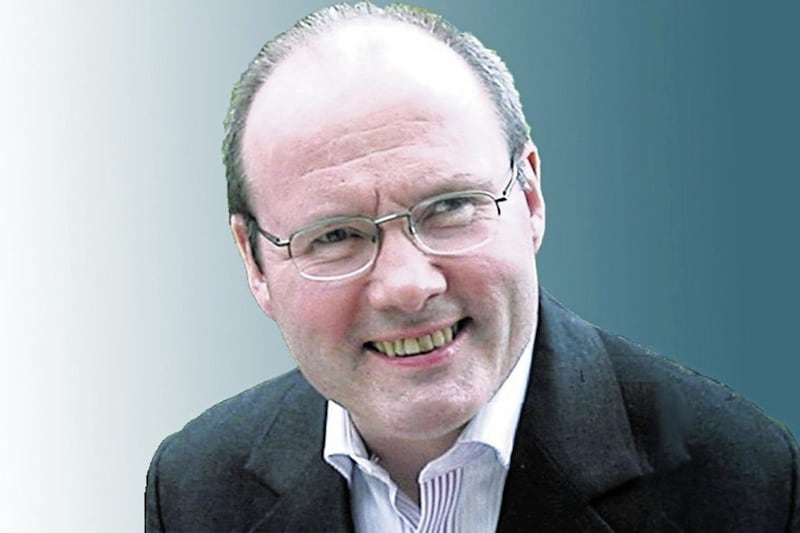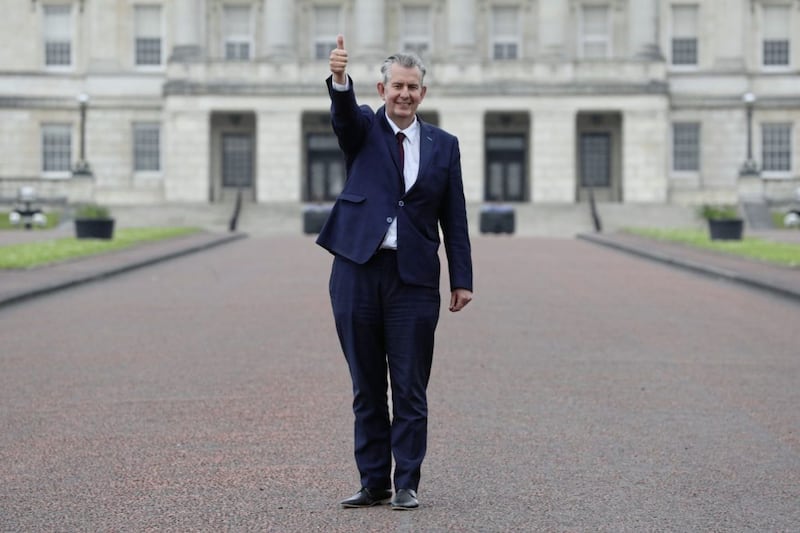A MONTH from now the assembly will be dissolved ahead of the elections on May 5.
It remains to be seen how contentious moral issues such as abortion and the redefinition of marriage will feature on the hustings.
Abortion, arguably the most emotive of issues, because it always means the taking of defenceless human life, may be in a different category than same sex marriage though the latter will also test the consciences of MLAs in the future.
Candidates will be questioned about their views on these issues on the doorsteps and in the media and their answers may determine the crucial sixth seat in a number of closely fought constituencies.
These may include Foyle and South Belfast, the constituencies of Colum Eastwood and Fearghal McKinney, the leader and deputy leader respectively of the SDLP.
The SDLP will be doing well to retain their existing two seats in South Belfast and two of their three seats in Foyle following the interventions of Martin McGuinness and more recently Eamonn McCann on a People Before Profit ticket and of independent Dr Anne McCloskey, who is reported to be `pro-life'.
Mr McCann, a strong supporter of so-called abortion rights, lost by just 18 votes to Pat Ramsay last time. Mr Ramsay was chairperson of the assembly’s all party pro-life group until he retired.
Members of that group have included Mark H Durkan, the SDLP minister who is also contesting Foyle and Jim Allister, the TUV leader.
It has often been left to Mr Allister alone to perform an essential oppositional role in the current assembly and like many unionists he has been exceptionally sound on issues such as abortion and the integrity of marriage that transcend the traditional divide.
Of course there will be other issues on which candidates will be judged but parties who overlook the potential of these issues to swing seats would be making a mistake.
Voters seeking to be better informed at this stage will find the assembly debate on abortion on February 10, available in the official report on the assembly website, and Colum Eastwood’s February 23 radio interview with Stephen Nolan, available on BBC iPlayer, instructive.
The assembly, largely due to the combined forces of the DUP and SDLP, defeated an ill-judged attempt to legalise abortion in cases of so-called fatal foetal abnormality, a term not recognised in medical textbooks and one that implies that doctors can state infallibly if and when a severely disabled unborn baby will die.
In the debate Dolores Kelly and Fearghal McKinney demonstrated the clear blue water that exists between the SDLP and Sinn Fein on abortion.
Ms Kelly stressed she belonged to “a pro life party” and argued that hard cases make bad law.
Mr McKinney helpfully asked if the possible unintended consequences of such a major change in the law could be the provision of abortion in cases of, for example, Down’s syndrome or spina bifida.
That “pro life” position has been enshrined as policy ever since an SDLP conference many years ago and has been enunciated by every SDLP leader – until now.
However, Colum Eastwood failed to state explicitly in his Nolan interview that the party he leads is “a pro life party”, the second time he has made this significant omission in a BBC interview when asked about abortion although he made clear his opposition to the extension of the 1967 Act and stated “we have to protect life.”
When Stephen Nolan asked Mr Eastwood directly what his view is on euthanasia he replied: “To be honest, Stephen, I don’t know” adding that it was something he had “given consideration to but not enough” while volunteering that euthanasia would be “a big leap.”
At first hearing such an answer may seem refreshingly honest but really the leader of any party who aspires to government, let alone the leader of a supposedly pro life party, should do better.
Mr Eastwood’s only concrete promise to electors seemed to be to support “gay marriage.”
He wasn’t asked whether he supported a free vote on the issue and had difficulty articulating policy differences between the SDLP and Sinn Fein.
However, Colum volunteered to Stephen that he is an admirer of Pope Francis.
This Lent we might all ponder the words of Pope Francis: “All life has inestimable value even the weakest and most vulnerable, the sick, the old, the unborn and the poor, are masterpieces of God’s creation, made in his own image, destined to live forever, and deserving of the utmost reverence and respect.”








